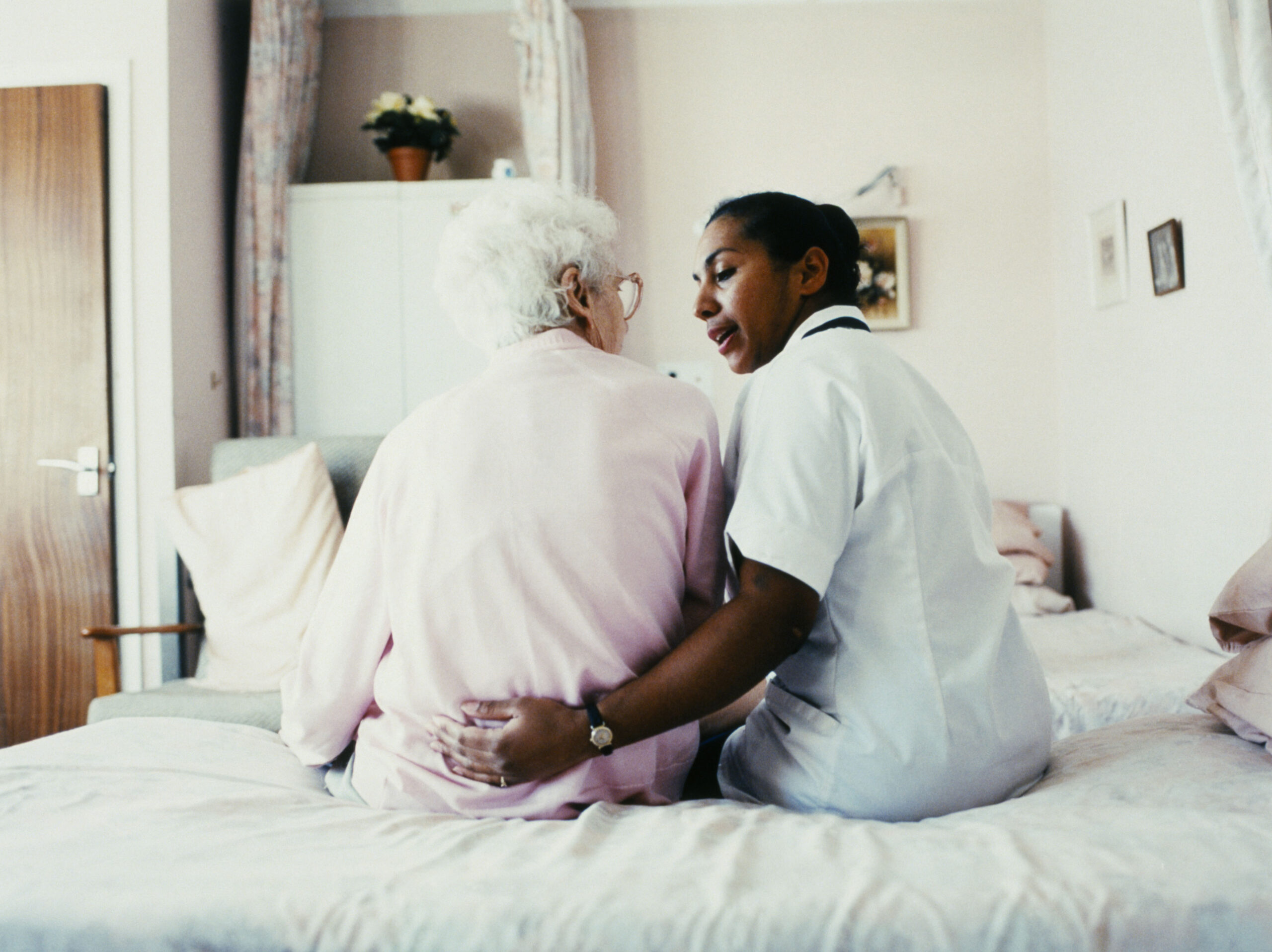
I had, in a way, seen it coming. What “it” was I didn’t know with any certainty, except that it would be bad. You know how you wake up on some days with a feeling of deep foreboding? Well, this had been going on for a couple of days.
One evening I took my glasses off with a slight flourish and the right arm snapped half off, hanging by a metal thread. This was bad, because these were the glasses with the snazzy photochromic lenses that I wear so I don’t go blind. But this was still not nearly bad enough to be the Bad Thing. No, I was not being messed with nearly enough. Even when I went to Vision Express to see if they could fix it, and they couldn’t, and then charged me the thick end of £150 for a new pair, the sense of impending doom didn’t go away.
And so eventually I got a call from my mother, who had fallen and broken her pelvis. Now that is, unarguably, far worse for her than it is for me, but nevertheless I had to drop everything and go to East Finchley to feed the cat and relieve my daughter, who had been taking care of things until I arrived. Here I am now, sitting at my brother’s desk, tapping away at this column while occasionally lifting my eyes to contemplate the same bland, unchanging view of London N2 that drove me insane with boredom and disgust during my teenage years. I am sitting on an office chair that every five minutes or so decides it is too tall, and lowers me towards the ground with a gentle hiss. All office chairs do this to me: it is like living under a curse.
I shall spare you the details of my mother’s first 24 hours in hospital. Suffice to say that giving full-strength codeine to an elderly woman is quite the up-and-down ride for everyone. The effects hadn’t wholly worn off the next day, when I visited. My appearance coincided with that of the Frailty Team, which consisted of a nurse and a doctor. They gave her a cognitive ability test. This involved things such as being asked to name the months backwards. “December, November, October, September… how far back,” she asked, displaying some impatience, “do you want me to go?” “June will be fine,” said the nurse. “August, July, June, blah blah blah.” Bear in mind she has an American accent, so her blahs carry a greater force than British ones. Also bear in mind she has a voice trained for opera, so is able to make herself heard over great distances.
“When did the First World War start?” Confusion crept over her face. For one thing, Americans think it started in 1917. “1939?” “Correct.” Quis custodiet ipsos custodes, I thought to myself. Never mind. They started asking questions about her general health. This resulted in some narrative diversions. A question about her teeth took everyone in the Mary Seacole (North) Ward at Whittington Hospital back to Atlantic City in (coincidentally) 1939, when she had an accident in a jitney and had her front teeth badly chipped. I doubt there is a single person in Whittington Hospital who knows what a jitney is (it’s a small bus), or has even heard the word before. I have, because I have heard this story a few times over the years.
The nurse then pointed to the doctor and asked my mother what her job was. This time my mother’s bafflement was profound. “Go on,” I said, “take a wild guess.” She never got it. I suppose for someone born in 1927, the idea of a female doctor is an idea too far.
The questions became more intimate: you know, waterworks, that kind of thing.
“I think I’ll go for a little stroll,” I said.
“No, it’s all right, we’re nearly done.” There was a pause.
“What are you going to ask me about now?” said my mother. “My sex life?” I have inherited my mother’s inability to face any kind of serious situation without making at least one attempt at an inappropriate joke, but I have to concede the crown to her. This was a good one, even better than when she blew a plume of smoke towards her 11-year-old grandson’s face at the dinner table and said: “Smoking is great.” I turned to the nurse and said: “Whatever they’re paying you, it’s not enough.”
Anyway, the boy returns to East Finchley, like the fool to his folly, and although there is nothing to do here I at least have a pussycat to play with. I shall wrap this up now and go to the hospital to see how many more patients and staff she has managed to scandalise since yesterday. She’s been bragging about me: “He writes for the New Statesman, you know.”
Read more:
Focus on prevention to keep the NHS true to its soul
Can “virtual wards” fix the NHS’s state of emergency?
Fleishman Is in Trouble is a slick but exhausting portrait of New York wealth
This article appears in the 01 Mar 2023 issue of the New Statesman, The Mission






